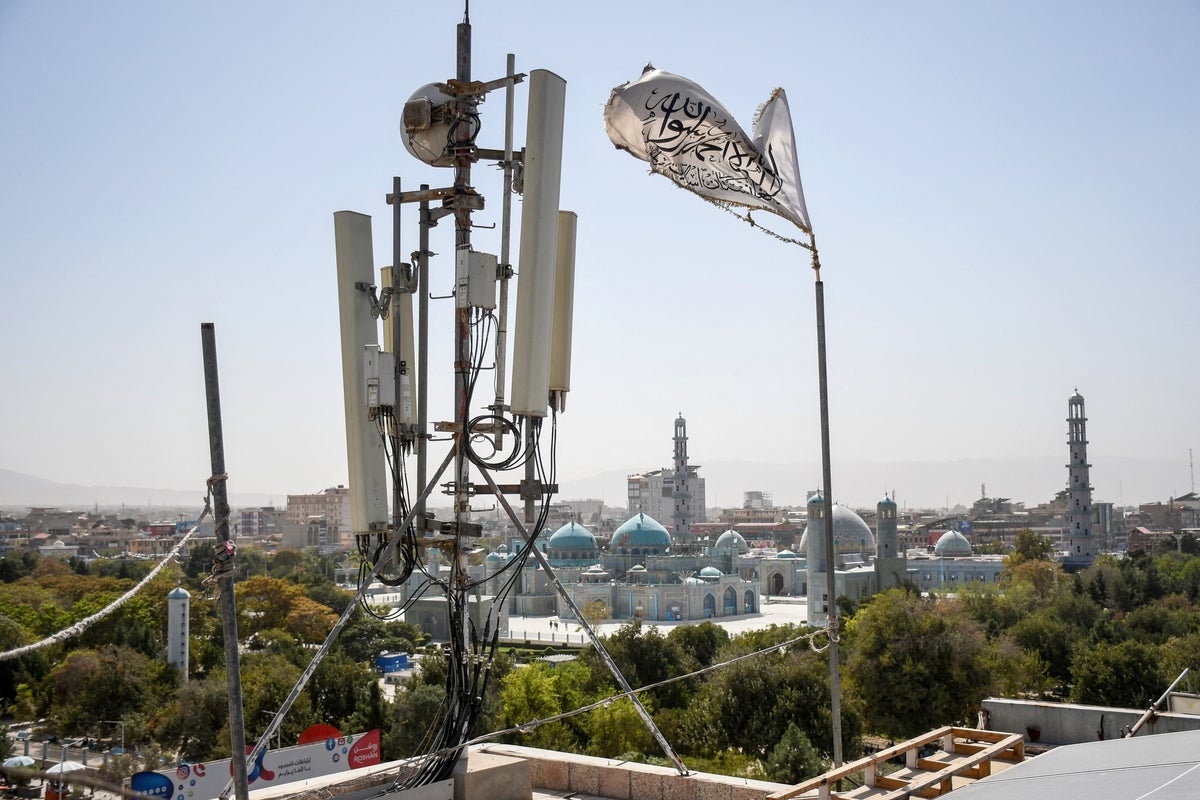Politics
Taliban Expands Internet Ban Across Afghanistan to Curb ‘Immorality’

The Taliban has implemented a widespread ban on fibre-optic internet across multiple provinces in Afghanistan, aiming to “prevent immorality.” This marks the first significant restriction on internet access since the group regained control of the country in August 2021. As a result, government offices, public institutions, and private businesses are left without Wi-Fi, although mobile internet services remain operational.
Reports indicate that the disruption began in the northern Balkh province, which confirmed the cessation of Wi-Fi services on Tuesday. Following this, officials from Baghlan, Badakhshan, Kunduz, Nangarhar, and Takhar provinces announced similar restrictions on Thursday. In a statement to The Associated Press, Siddiqullah Quraishi from the Nangarhar Culture Directorate acknowledged the internet shutdown. The governor’s office in Kunduz also communicated the ban through an official message on WhatsApp.
This decision has drawn widespread criticism. The Afghanistan Media Support Organisation expressed its concerns, stating, “This action, carried out on the orders of the Taliban’s leader, not only disrupts millions of citizens’ access to free information and essential services but also poses a grave threat to freedom of expression and the work of the media.”
The restrictions come as the Taliban continues to tighten its grip on information flow within the country. In a previous statement, Enayatullah Alokozai, the spokesperson for the Communications Ministry, indicated that Afghanistan had developed a fibre-optic network exceeding 1,800 km (approximately 1,125 miles) and had plans for an additional 488 km (about 305 miles). Until now, most Afghan provinces had access to fibre-optic services, which facilitated communication and access to information.
While authorities have indicated that alternatives are being sought for essential services, the long-term implications of this ban on freedom of expression and access to information remain a significant concern for many Afghans. As the situation evolves, the international community watches closely, aware of the implications for civil liberties in Afghanistan.
-

 Health3 months ago
Health3 months agoNeurologist Warns Excessive Use of Supplements Can Harm Brain
-

 Health3 months ago
Health3 months agoFiona Phillips’ Husband Shares Heartfelt Update on Her Alzheimer’s Journey
-

 Science1 month ago
Science1 month agoBrian Cox Addresses Claims of Alien Probe in 3I/ATLAS Discovery
-

 Science1 month ago
Science1 month agoNASA Investigates Unusual Comet 3I/ATLAS; New Findings Emerge
-

 Science4 weeks ago
Science4 weeks agoScientists Examine 3I/ATLAS: Alien Artifact or Cosmic Oddity?
-

 Science4 weeks ago
Science4 weeks agoNASA Investigates Speedy Object 3I/ATLAS, Sparking Speculation
-

 Entertainment4 months ago
Entertainment4 months agoKerry Katona Discusses Future Baby Plans and Brian McFadden’s Wedding
-

 Entertainment4 months ago
Entertainment4 months agoEmmerdale Faces Tension as Dylan and April’s Lives Hang in the Balance
-

 World3 months ago
World3 months agoCole Palmer’s Cryptic Message to Kobbie Mainoo Following Loan Talks
-

 Science4 weeks ago
Science4 weeks agoNASA Scientists Explore Origins of 3I/ATLAS, a Fast-Moving Visitor
-

 Entertainment4 months ago
Entertainment4 months agoLove Island Star Toni Laite’s Mother Expresses Disappointment Over Coupling Decision
-

 Entertainment3 months ago
Entertainment3 months agoMajor Cast Changes at Coronation Street: Exits and Returns in 2025









